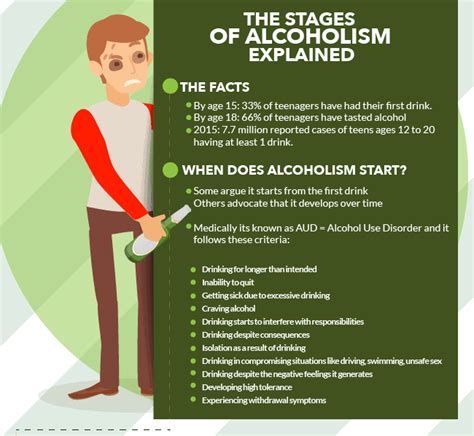The Path to Alcoholism: How Long Does It Take?
The question, "How long does it take to become an alcoholic?" doesn't have a simple answer. There's no set timeframe, and the journey to alcohol dependence is unique to each individual. While some people develop problematic alcohol use relatively quickly, others progress more gradually over years. Understanding the factors that contribute to the development of alcoholism is crucial in recognizing and addressing the issue.
What is Alcoholism (Alcohol Use Disorder)?
Before delving into the timeline, it's important to define alcoholism, more accurately termed Alcohol Use Disorder (AUD) by the medical community. AUD is a chronic relapsing brain disease characterized by compulsive alcohol seeking and use, despite harmful consequences. It's a spectrum disorder, meaning its severity can range from mild to severe, depending on the number of criteria met. The Diagnostic and Statistical Manual of Mental Disorders (DSM-5) outlines specific criteria, including:
- Cravings: An intense desire or urge to drink alcohol.
- Loss of Control: Difficulty limiting the amount of alcohol consumed.
- Withdrawal Symptoms: Experiencing physical or psychological symptoms when attempting to stop drinking.
- Tolerance: Needing increasingly larger amounts of alcohol to achieve the desired effect.
- Neglecting Responsibilities: Failing to fulfill obligations at work, school, or home due to alcohol use.
- Continued Use Despite Problems: Continuing to drink despite knowing it causes problems in relationships, health, or other areas of life.
How Quickly Can Alcohol Dependence Develop?
The speed of development varies considerably. Some individuals may develop AUD within months of starting to drink heavily, particularly those with a family history of alcoholism or other predisposing factors. Others might engage in problematic drinking patterns for years before meeting the full criteria for AUD.
Factors Influencing the Timeline to Alcohol Dependence:
Several factors play a significant role in how quickly someone might develop AUD:
- Genetics: Family history of alcoholism significantly increases the risk. Genetic predisposition influences how the body metabolizes alcohol and the brain's response to it.
- Mental Health: Co-occurring mental health conditions like depression, anxiety, and post-traumatic stress disorder (PTSD) can increase the risk and accelerate the progression to AUD. Alcohol may be used as a form of self-medication.
- Social Environment: Peer pressure, cultural norms around alcohol consumption, and readily available alcohol can contribute to the development of problematic drinking habits.
- Personality Traits: Certain personality traits, such as impulsivity and sensation-seeking, might increase vulnerability to alcohol dependence.
- Age of First Drink: Starting to drink at a younger age increases the risk of developing AUD. The developing brain is more susceptible to the harmful effects of alcohol.
- Method and Amount of Consumption: Binge drinking (consuming large amounts of alcohol in a short period) significantly accelerates the development of AUD compared to more moderate consumption patterns.
H2: What are the early warning signs of Alcoholism?
Recognizing early warning signs is crucial for timely intervention. These can include:
- Increased tolerance: needing more alcohol to feel the same effects.
- Withdrawal symptoms: experiencing physical or emotional discomfort when trying to cut back or stop drinking.
- Neglecting responsibilities: missing work or school, neglecting family obligations.
- Risky behaviors: engaging in dangerous activities while under the influence.
- Relationship problems: experiencing conflict with loved ones due to drinking.
- Health problems: developing alcohol-related health issues like liver damage or pancreatitis.
H2: Is it possible to reverse alcoholism?
While there's no quick fix, alcoholism is treatable. Recovery is a process that often involves a combination of therapy, medication, and support groups like Alcoholics Anonymous (AA). The success of recovery depends on various factors, including the individual's commitment to change, the availability of support, and the severity of the AUD.
H2: How can I get help for alcoholism?
If you or someone you know is struggling with alcohol abuse, seeking professional help is crucial. Resources include:
- Doctors and therapists: They can provide a diagnosis, recommend treatment options, and refer to specialists.
- Rehabilitation centers: These facilities offer comprehensive treatment programs, including detoxification and therapy.
- Support groups: Groups like AA provide peer support and a sense of community.
- SAMHSA National Helpline: A confidential, free, 24-hour-a-day, 365-day-a-year, information service, in English and Spanish, for individuals and family members facing mental and/or substance use disorders. 1-800-662-HELP (4357).
The path to alcoholism is not a straight line. It's a complex process influenced by numerous factors. Early recognition of warning signs and seeking professional help are critical for successful treatment and recovery. Remember that recovery is possible, and there are resources available to support individuals and their families on this journey.

